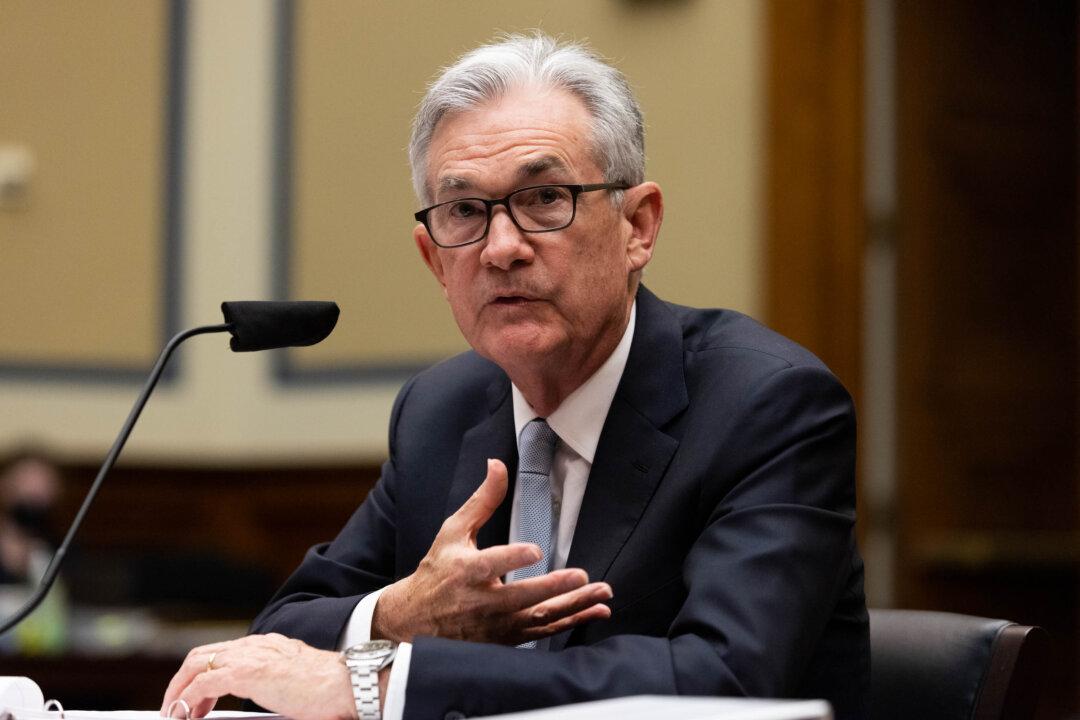Federal Reserve Chairman Jerome Powell is set to appear at a hearing on Sept. 28 where he will tell Congress that inflation is likely to stay elevated over the next few months.
Powell will speak Tuesday morning before the Committee on Banking, Housing, and Urban Affairs, in Washington, D.C. as part of a mandated testimony regarding the Fed’s economic response to the COVID-19 pandemic.




